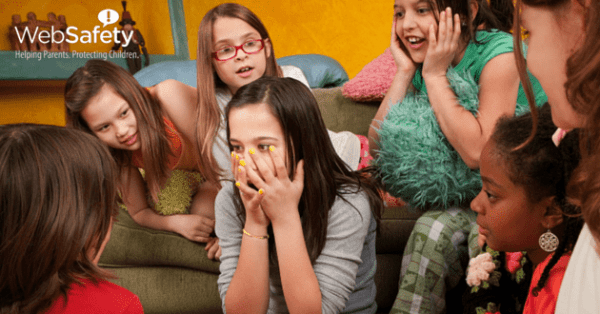
When your son or daughter approaches you to ask if they can attend a sleepover at a friend's house, you'd like to picture him or her all sitting around playing games or talking through the night. You'd never want to think that it could be a setting where your child can be harmed.
However, the reality is that sleepovers aren't always innocent. Here are five terrifying things that may actually happen to your child while he or she is away for the night at a friend's house.
1. Internet porn
Technology is a lot different now than it used to be. While the possibility of a child discovering a stash of pornographic magazines at a friend's house was fairly small 20 years ago, easy Internet access, especially via mobile phones, opens up a completely different world of hardcore pornography, some of it violent or unnatural. Despite the shame or guilt your child feels for watching it, pornography is addictive and your child could end up developing an unhealthy attachment. What's worse, that shame or guilt that comes with watching the stuff may keep your child from telling you about it.
2. Molestation
According to research, about 60 percent of sexual predators are known to their child victim, but aren't family members. A quick Google News search of "sleepover sexual abuse" returns more than 7,000 stories of children being molested at a sleepover by a parent or peer. Age doesn't seem to be a deterrent either. The biggest problem? If your child doesn't report it, that doesn't mean it isn't. Some children may be so ashamed or afraid of his or her parents' reaction or a threat from the predator that they delay disclosure, often until adulthood.
3. Learning from older siblings
You may know your child's friend and his or her parents, but you may not know the rest of the family. If an older brother or sister is a bad influence, he or she may introduce your child to things you wouldn't want him or her to go anywhere near. Plus, you may not know it until your child has already developed the bad habits.
4. Sneaking out
Whether it's to go "doorbell ditching," toilet papering or something more sinister, your child may undergo peer pressure to do something he or she isn't inclined to do on his or her own. While they're out and about, the chances of something bad happening increase exponentially.
5. Drugs
If your child's friend's parents have alcohol in the fridge or an older sibling or fellow sleepover pal has access to drugs, your child's curiosity may get the best of him or her if there's an opportunity to try them. Again, it's unlikely you'll hear of this and it may turn into a long-term problem.
Whether or not you decide to allow your children to attend sleepovers, understand the risks and be prepared.
Get to know the family where your child is staying. Talk to your child about potential pitfalls and encourage him or her to call you if they come across something that makes them uncomfortable.
While you can't prevent all bad things from happening, a little preparation can go a long way to protecting your child from harm. One way you can be prepared is by downloading the WebSafety app to monitor your child's online and other activity on his or her mobile phone. This app comes with many features, such as monitoring which websites your child visits, to protecting multiple devices. You can feel better about letting your child attend sleepovers and other activities by using WebSafety. Click here to find out more information or to download the app.

